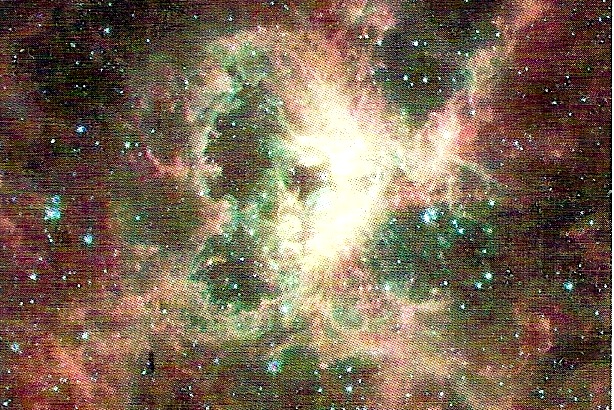Imagine looking through a standard telescope on a clear night and seeing Saturn’s rings pop out of the sky. This vision, and planet Saturn itself, is one of Physics teacher Ms. Sarah Ell’s favorite aspects of the sky. You too can see and understand this starry visual by taking Langley’s first ever astronomy course.
Ms. Ell’s passion for astronomy began as a child, when her father would take her outside to stargaze. “My dad has always been interested in astronomy. He would know when meteor showers were and we would go outside to watch.”
Next year, Ms. Ell hopes to share with students her passion for astronomy, as an astronomy elective will be offered. The class, available to students who have taken biology and chemistry, offers a run-through on the development of the field of astronomy before delving into complex topics, from the formation of galaxies to a discussion of astrobiology.
However, astronomy classes taught during the day bring with them several questions about instruction—namely, how do you study stars during the day in a school that does not have a planetarium?
Astronomy students will make use of the program “Starry Night,” a software program that Geosystems classes already make use of, as well as online simulations. Because many of the topics that astronomy courses cover cannot be observed in the night sky, such programs provide the best overview of phenomena that cannot be viewed every night, such as the Big Bang. However, the class will also look for chances to understand astronomy outside of the classroom, taking to the football field at night when possible and making trips to Observatory Field in Great Falls.
Although, it requires time outside of the classroom, but Ms. Ell stresses that the class is rewarding. “The amount of work you put into it will reflect the grade you get out of it,” she said.
Senior Spencer Shabshab, one of the founding members of Langley’s Pulsar Search Collaboratory Club (PSC), a group that helps look for new stars and planets, was excited to hear of the development of an astronomy elective. “I wish I could be here next year,” he said. Shabshab added that the astronomy course has the potential to impact the development of PSC, saying, “It’ll definitely prepare more students to participate, and I think the program will get a good boost from that, which will be exciting.”
Senior Dana Kazarooni, a member of Langley’s Science Olympiad Team, seconds Shabshab’s excitement. “When I first heard that Langley would offer astronomy, I was pretty angry—but that was because I wouldn’t be able to take it,” he said. Kazarooni added that the development of an astronomy class could provide a boost to Science Olympiad in competition, where Thomas Jefferson High School tends to dominate in the astronomy category. “It would be nice to win first in astronomy for a change,” Kazarooni said.


